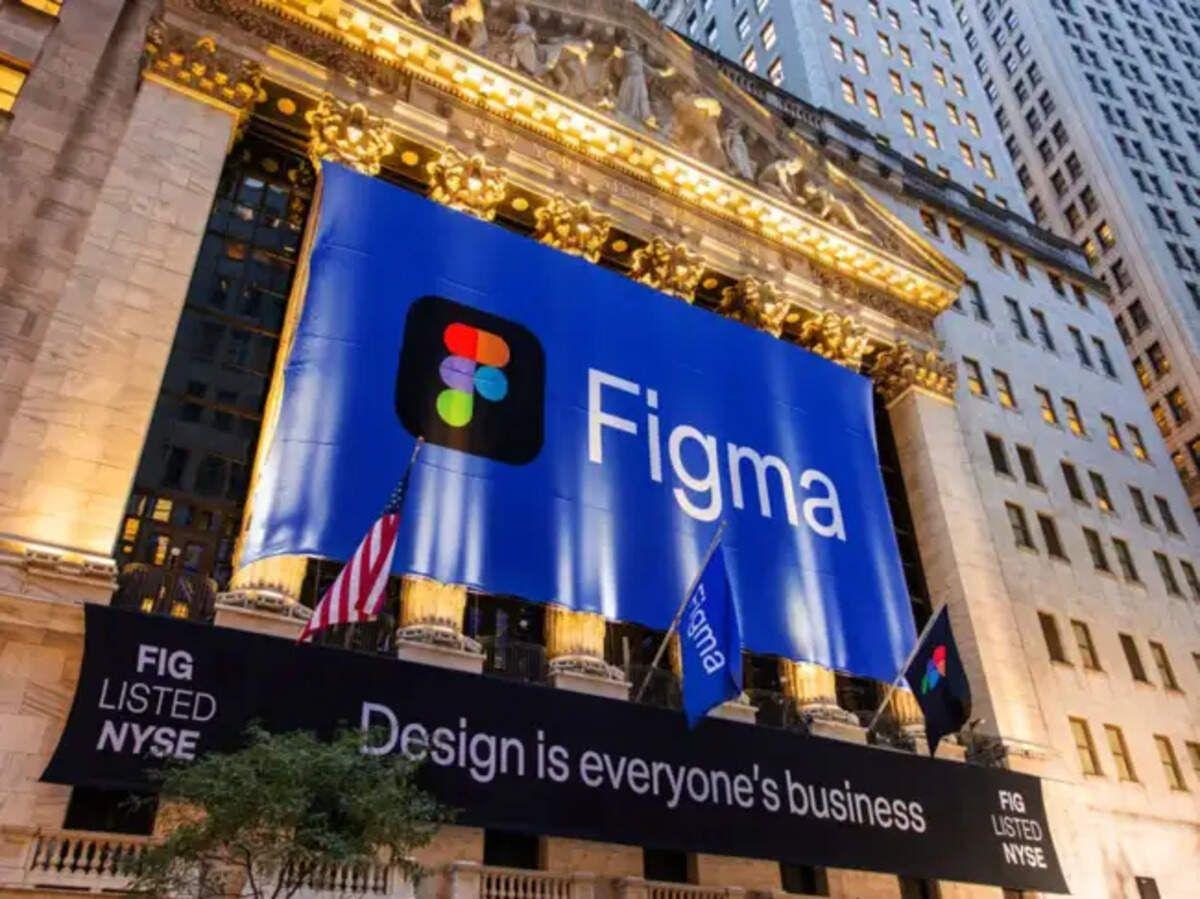Figma Opens First India Office in Bengaluru as 93% of Indian Designers Embrace AI Tools
2 Sources
2 Sources
[1]
Figma Opens Bengaluru Office, Begins Hiring | AIM
Collaborative design platform Figma has opened its first office in India, located in Bengaluru. The company also said that it has begun hiring. Alongside the launch, Figma unveiled new AI design tools and released research showing strong adoption of AI in design among Indian companies. "Today India is our second-largest active user market. As it evolves into a global software and manufacturing hub, the value of design will only grow," Scott Pugh, APAC vice president of sales at Figma, said. "We've seen increasing demand from Indian companies, and with the office opening, we want to get closer to our users and the community here." All Figma products are now available in India, including Figma Design, Figma Make, Dev Mode, Figma Sites, FigJam, Figma Slides, Figma Draw, and Figma Buzz. Figma said over 85% of its users are based outside the United States, and about half its revenue in 2024 came from international markets. The Bengaluru office joins a global network that includes New York, Tokyo, Singapore, London, Paris, Berlin, Sydney, and São Paulo. Figma recently acquired Weavy, a generative AI platform, and introduced new design systems integration in Figma Make, which it said will help teams scale design capabilities across products and brands. According to Figma, 93% of designers in India say their companies already use AI in design, while 85% believe AI simplifies code writing. The study also found that 81% of developers consider design increasingly important to the success of AI-powered products. The survey was conducted by YouGov among 730 professionals in design, engineering, and product leadership roles. Figma said it now serves users in 85% of India's 28 official states, and counts leading organisations such as Airtel, CARS24, Groww, Juspay, Myntra, Swiggy, TCS, and Zomato among its customers. Over 40% of BSE100 companies use Figma products.
[2]
93% designers use AI tools in India: Figma survey
San Francisco-based Figma is positioning itself as an AI-powered platform that supports the entire product development lifecycle from ideation to coding. US-based Figma is betting beyond design in India through its new artificial intelligence (AI) tools for both designers and developers. Per a recent survey by the cloud-based design platform in partnership with YouGov, the Indian design community is rapidly embracing AI -- 93% of designers are already using AI tools in their work. The study, which surveyed around 730 professionals, also found that 85% of respondents believe AI has made coding simpler. This comes as Figma accelerates its India expansion, positioning itself as an AI-powered platform that supports the entire product development lifecycle from ideation to coding. On Wednesday, the company inaugurated its first office in India and unveiled a suite of new AI design tools. With this launch, all of Figma's offerings -- including Figma Design, Figma Make, Dev Mode, Figma Sites, FigJam, Figma Slides, Figma Draw, and Figma Buzz -- are now available in the country. "In a world where anyone can build multiple products quickly, the best team would be the one to embrace different ways of design," said Abhishek Mathur, VP of engineering, Figma. "The most successful team will train their people, product managers, engineers, and designers in all these ways and provide the right tooling for them because design is not going anywhere. It is becoming the mode." Launched in 2012 by Dylan Field and Evan Wallace, Figma is known for enabling real-time collaboration among designers, developers, and teams worldwide. The platform quickly gained popularity for its intuitive interface, collaborative features, and ability to streamline the design process. It went public in 2025, reaching a valuation of around $70 billion after listing. It has since corrected to around $22 billion. In India, Figma counts Airtel, Cars24, Groww, Juspay, Myntra, Zomato, TCS, and Swiggy among its customers. Over 40% of the top BSE100 companies are Figma customers as of September 2025. The San Francisco-headquartered company has 85% of its users outside the US, where a majority of its revenue in 2024 also came from, exposing it to potential stumbles if international clients tighten their purse strings in response to tariffs. According to Figma executives, as AI tools make designing accessible to all, design has reached boardroom conversations and is driving strategy. "Design has reached the C-suite and boardrooms," said Sheila Vashee, chief marketing officer, Figma. "As more people have access to AI tools, designs created will look more generic. So, design is now driving conversations and strategy." To further strengthen its AI offerings, Figma acquired generative AI-powered image and video generation platform Weavy in October. Also Read: AI to augment ideas, help firms move up the creative stack: Figma global CTO
Share
Share
Copy Link
Figma launches its first Indian office in Bengaluru and unveils new AI design tools, as a survey reveals widespread AI adoption among Indian designers. The company positions itself as an AI-powered platform supporting the entire product development lifecycle.
Figma Establishes Indian Presence with Bengaluru Office Launch
Collaborative design platform Figma has opened its first office in India, located in Bengaluru, marking a significant milestone in the company's international expansion strategy
1
. The San Francisco-based company has simultaneously begun hiring for its Indian operations and unveiled new AI design tools, positioning itself as an AI-powered platform that supports the entire product development lifecycle from ideation to coding2
.
Source: ET
Scott Pugh, APAC vice president of sales at Figma, emphasized India's strategic importance, stating that "Today India is our second-largest active user market. As it evolves into a global software and manufacturing hub, the value of design will only grow"
1
. The Bengaluru office joins Figma's global network that includes New York, Tokyo, Singapore, London, Paris, Berlin, Sydney, and São Paulo.Widespread AI Adoption Among Indian Design Community
A comprehensive survey conducted by Figma in partnership with YouGov reveals remarkable AI adoption rates within India's design community. The study, which surveyed approximately 730 professionals in design, engineering, and product leadership roles, found that 93% of designers in India are already using AI tools in their work
1
2
.The research also uncovered that 85% of respondents believe AI has made coding simpler, while 81% of developers consider design increasingly important to the success of AI-powered products
1
2
. These findings highlight the transformative impact of AI on the design and development landscape in India.Complete Product Portfolio Now Available in India
With the office launch, all Figma products are now available in India, including Figma Design, Figma Make, Dev Mode, Figma Sites, FigJam, Figma Slides, Figma Draw, and Figma Buzz
1
2
. The company has established a strong customer base in India, serving users in 85% of the country's 28 official states and counting leading organizations such as Airtel, CARS24, Groww, Juspay, Myntra, Swiggy, TCS, and Zomato among its customers1
2
.Notably, over 40% of BSE100 companies use Figma products, demonstrating the platform's penetration among India's top corporations
1
2
.Related Stories
Strategic AI Investments and Market Positioning
Figma has been actively strengthening its AI capabilities through strategic acquisitions and product development. The company recently acquired Weavy, a generative AI platform, and introduced new design systems integration in Figma Make, which aims to help teams scale design capabilities across products and brands
1
2
.Abhishek Mathur, VP of engineering at Figma, emphasized the evolving nature of design in the AI era: "In a world where anyone can build multiple products quickly, the best team would be the one to embrace different ways of design. The most successful team will train their people, product managers, engineers, and designers in all these ways and provide the right tooling for them because design is not going anywhere. It is becoming the mode"
2
.References
Summarized by
Navi
Related Stories
Figma Unveils AI-Powered Tools for Web Design, Prototyping, and Marketing
08 May 2025•Technology

Figma Democratizes App Development with AI-Powered Tool Now Available to All Users
25 Jul 2025•Technology

Figma partners with Anthropic on Code to Canvas as stock plunges 85% amid AI disruption fears
17 Feb 2026•Technology

Recent Highlights
1
OpenAI secures $110 billion funding round from Amazon, Nvidia, and SoftBank at $730B valuation
Business and Economy

2
Samsung unveils Galaxy S26 lineup with Privacy Display tech and expanded AI capabilities
Technology

3
Anthropic faces Pentagon ultimatum over AI use in mass surveillance and autonomous weapons
Policy and Regulation





